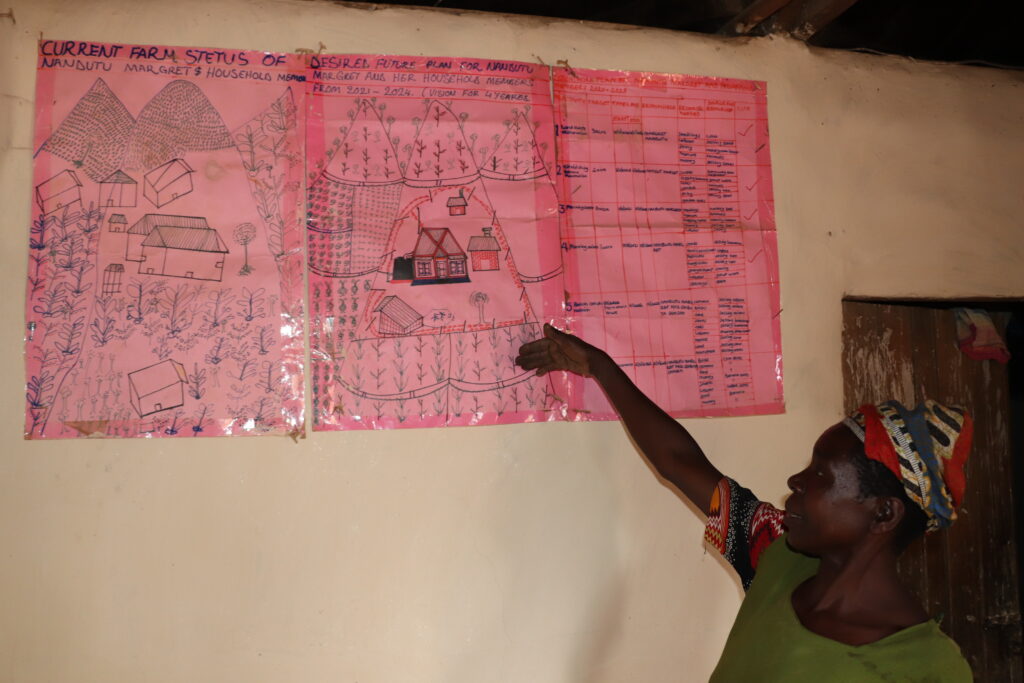By Andrew Masinde
Sustainable land management is crucial since only healthy soils can produce food.
Smallholder farmers are key actors in food security, because they are the majority who cultivate the land.
Hence keeping the soil healthy is therefore essential; but this can only be achieved when smallholders are inspired to keep their land in a good condition.
One of the approaches that can lead to achieving this is through the Integrated Farm Plans, Plan Integre du Paysan (PIP) in French. The approach is an inclusive bottom-up approach that engages people in environmental stewardship and sustainable change.
PIP aims at building a foundation for sustainable change at different levels: within people, households, farms, communities, and institutions. PIP approach was developed by Wageningen Environmental Research (WENR).
The model is an integrated and evidence-based farm planning model which engages households and communities in sustainable farm development.
In the PIP approach, motivated people and healthy land are considered the foundation for resilient farming systems. When farmers become good stewards of their land, and when they put the ‘care for their land’ central, they can establish resilient farming systems.
Yusuf Wesonga, a PIP expert says that the core objective of the PIP approach is to foster resilient farming systems, such as farms that can resist and recover from shocks (droughts, excessive rainfall, pest infestations, among others), to continue producing food in a sustainable way.

“Through PIP approach, we call this resilience-based stewardship and a good stewardship of the land and farm by motivated farmers, who are committed to keep their land healthy, who are always busy (and aware of the need) to make their farms more resilient and when all is done, eventually they become sustainable entrepreneurs with income from their farms,” he says.
He adds that the farmers and their families are central to bring about this change, hence they are supported to invest in the management of their land before investing in anything else which is a precondition for this sustainable change.
According to Wesonga, the farmer families are encouraged to draw plans which visualizes the current situation of the farm and the desired future situation, and is accompanied by an action plan, also made by the family.
“As the name ‘Integrated Farm Plan’ already expresses, an essential aspect of the approach is the integration of a diverse set of activities in one drawing or plan, actually covering the whole farm. In principle, all family members should be involved in the process of PIP creation,” he says.
Lona Nabulo, is a farmer from Nekoshe village, in Bukalasi sub county in Bududa district, together with her husband and children, were trained by some model farmers to make family a plan of where they want to be in four years.
She explains that the plan they drew become an inspiring process in which they discuss about strengths, weaknesses, opportunities and threats for their farm and household, with each member of the family contributing ideas.
“This plan has triggered collaboration in our household, and has stimulated the family to define joint objectives, as well as activities to realize the vision as drawn in the PIP. We have started visualized change including reduced domestic violence, sharing of home activities, farming together among others, “she says.
Michael Namis Dan, a farmer from Matuwa Village, Bushika Subcounty says that through the trainings, they were able to learn about livestock rearing and the importance of diversifying the type of livestock. He explains that they were trained on breeding techniques, feeding, reproduction, hygiene and health among others.
They were also trained on crop management including, the importance of growing particular crops, agro-ecological preferences, cultivation techniques such as choice of soil, plant density, crop rotations, planting material, planting techniques, nurseries for vegetables and trees, organic and mineral fertilization, crop maintenance (such as weeding, hoeing, mulching, irrigation, pest & disease management) among others.
“We were also trained on land management. The main collective activities on land management were scheduled in the dry season, which enabled us to directly put in practice what is learnt. We tried out land conservation practices and soil fertility management (mulching, continuous ridges, contour-lines, trenches, stone and soil bunds, intercropping, green fertilizers, liming etc.),” he said.
PIP principles
Just like a tree that needs fertile soil to grow strong, the PIP approach builds a foundation for sustainable change based on three foundation principles: motivation, stewardship and resilience.
This foundation of resilient and motivated stewards of the land and its natural resources, is essential for the sustainability of any intervention or action to be implemented such as; livestock improvement, reforestation, value chain development, water projects or micro-credit schemes.





